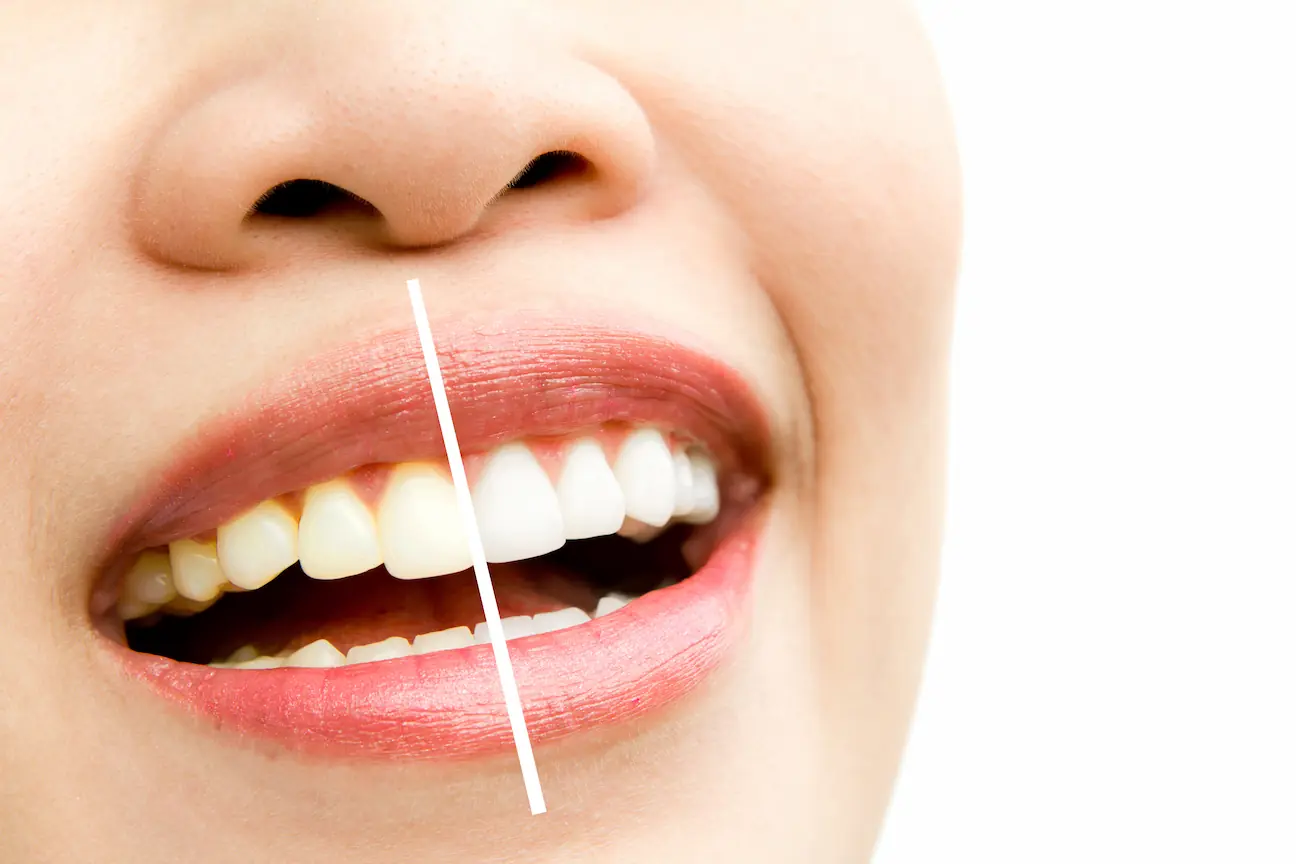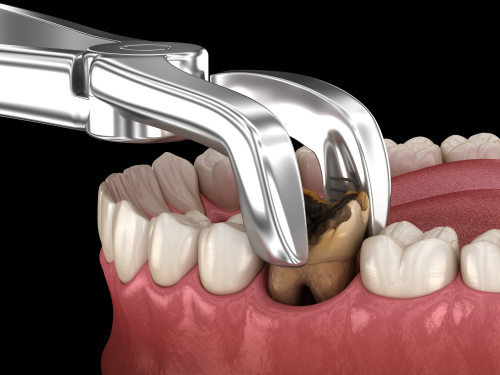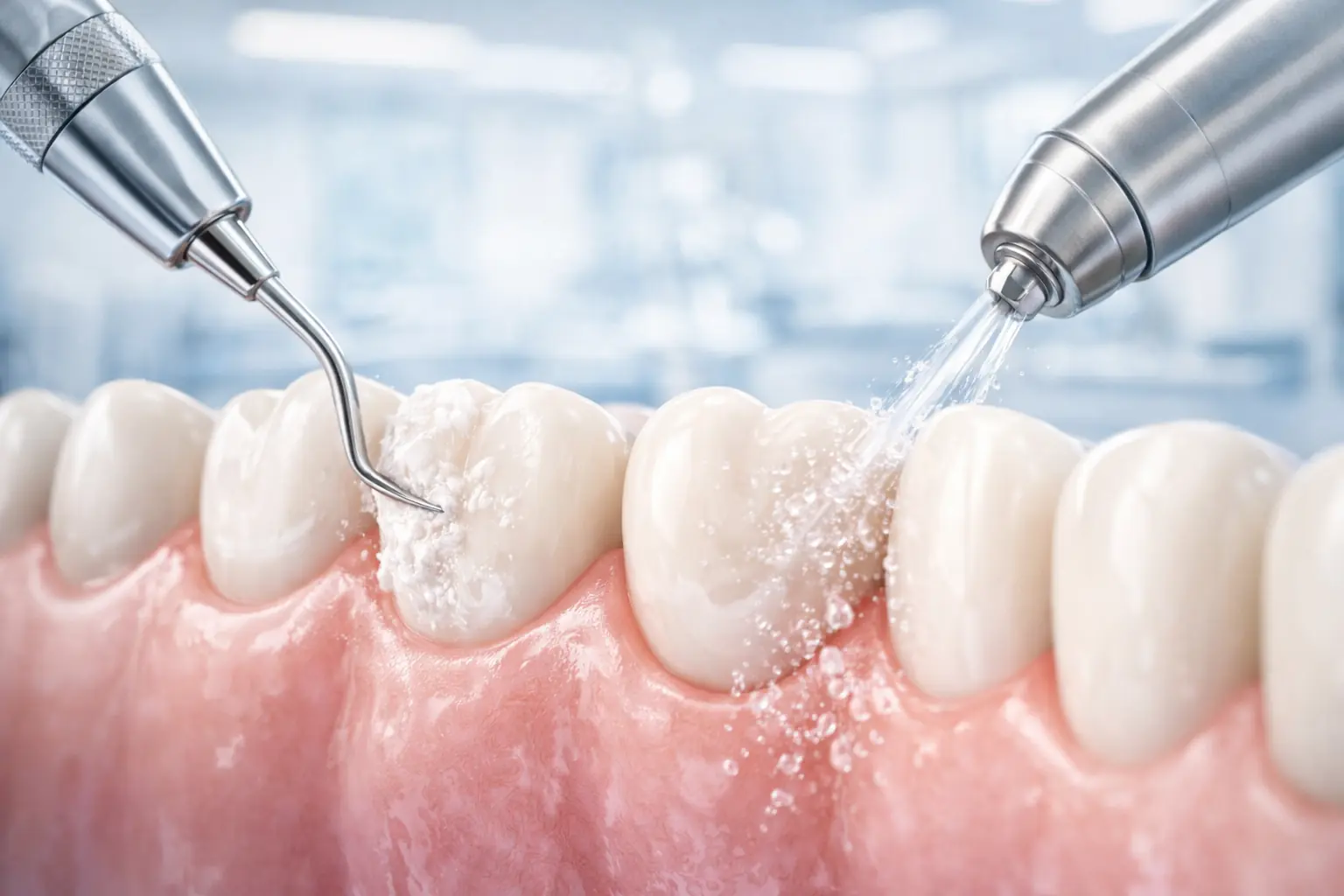If you want to have a brighter smile, you might be interested in teeth whitening. Teeth whitening is a cosmetic procedure that aims to make your natural teeth look brighter by reducing stains and discoloration. There are different types of teeth whitening methods, and some of them can be done at home or at your dentist's office. In this blog post, we will explain what teeth whitening is, how it works, and what are the benefits and risks of this procedure.
What causes teeth stains?
Teeth stains can be classified into two categories: intrinsic and extrinsic.
Intrinsic stains are those that affect the inner layer of the tooth enamel, and they can be caused by factors such as:
- Antibiotic use
- High levels of fluoride exposure
- Aging
- Tooth injury
- Certain medications
- Genetics
Extrinsic stains are those that affect the outer layer of the tooth enamel, and they can be caused by factors such as:
- Coffee
- Tea
- Wine
- Tobacco
- Artificial food colorings
How does teeth whitening work?
Teeth whitening works by applying a bleaching agent to the teeth, which breaks down the stain molecules and makes them less visible. The most common bleaching agents are hydrogen peroxide and carbamide peroxide, which are oxidizing chemicals that can penetrate the tooth enamel and reach the dentin layer.
There are different ways to apply the bleaching agent to the teeth, depending on the type and strength of the product. Some of the most common teeth whitening methods are:
- Whitening toothpaste and mouthwash: These products contain low concentrations of bleaching agents that can help remove surface stains and prevent new ones from forming. They are easy to use and affordable, but they have limited effects and may take longer to see results.
- Whitening strips and trays: These products contain higher concentrations of bleaching agents that can reach deeper stains and make them lighter. They are applied directly to the teeth for a certain amount of time, usually 30 minutes to an hour, once or twice a day for a few weeks. They are more effective and faster than whitening toothpaste and mouthwash, but they may cause tooth sensitivity and gum irritation.
- Laser teeth whitening : This is a professional procedure that is done in a dental office and that’s what we prefer to do at Hapliv Dental Clinic, Sector 65, Gurgaon (LASER TEETH WHITENING). It involves applying a high concentration of bleaching gel to the teeth and then activating it with a laser beam. The laser heats up the gel and enhances its whitening properties. The procedure takes about an hour and can produce immediate results. It is more expensive and requires more expertise than other methods, but it is also more powerful and safer.
What are the benefits and risks of teeth whitening?
Teeth whitening can have many benefits for your appearance and self-confidence, such as:
- Improving your smile
- Enhancing your facial features
- Boosting your mood
- Making you look younger
- Increasing your attractiveness
However, teeth whitening also has some potential risks and side effects, such as:
- Tooth sensitivity: This is a common side effect of teeth whitening that occurs when the bleaching agent irritates the nerves in the teeth. It can cause temporary pain or discomfort when eating or drinking hot or cold foods or beverages. It usually goes away after a few days or weeks, but it can be prevented or reduced by using desensitizing toothpaste or gel before or after the treatment.
- Gum irritation: This is another common side effect of teeth whitening that occurs when the bleaching agent comes in contact with the gums. It can cause redness, swelling, or bleeding of the gums. It usually goes away after a few days or weeks, but it can be prevented or reduced by using a gum protector or applying petroleum jelly to the gums before the treatment.
- Enamel damage: This is a rare but serious side effect of teeth whitening that occurs when the bleaching agent erodes or weakens the tooth enamel. It can cause permanent damage to the tooth structure, such as cracks, chips, or decay. It can also make the teeth more prone to staining in the future. It can be avoided by following the instructions of the product or dentist carefully and not overusing or abusing the treatment.
Who should try teeth whitening?
Teeth whitening is generally safe and effective for most people who want to improve their smile.
However, some people may not be good candidates for this procedure, such as:
- People with severe tooth decay or gum disease
- People with dental restorations, such as crowns, veneers, or fillings




